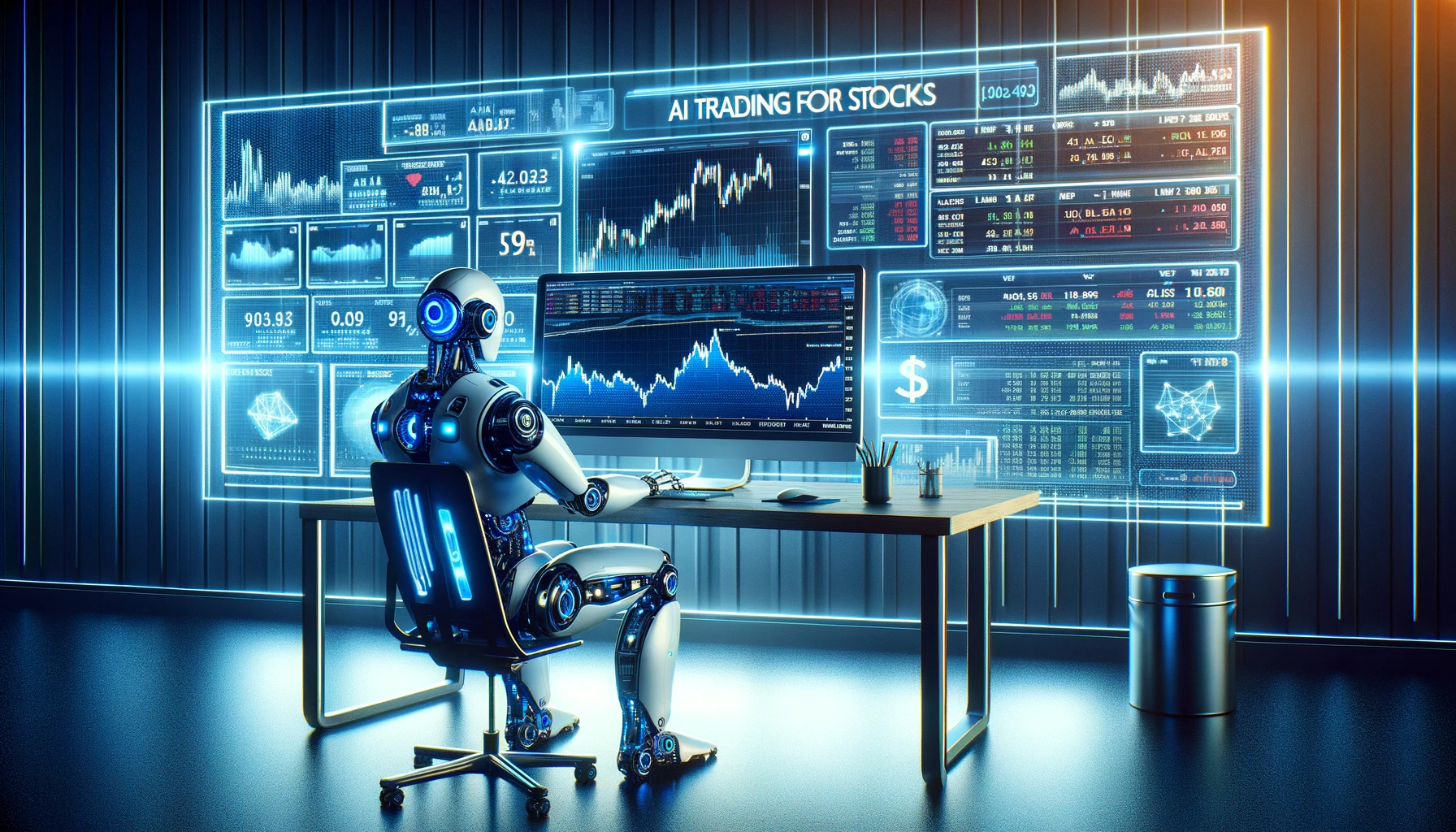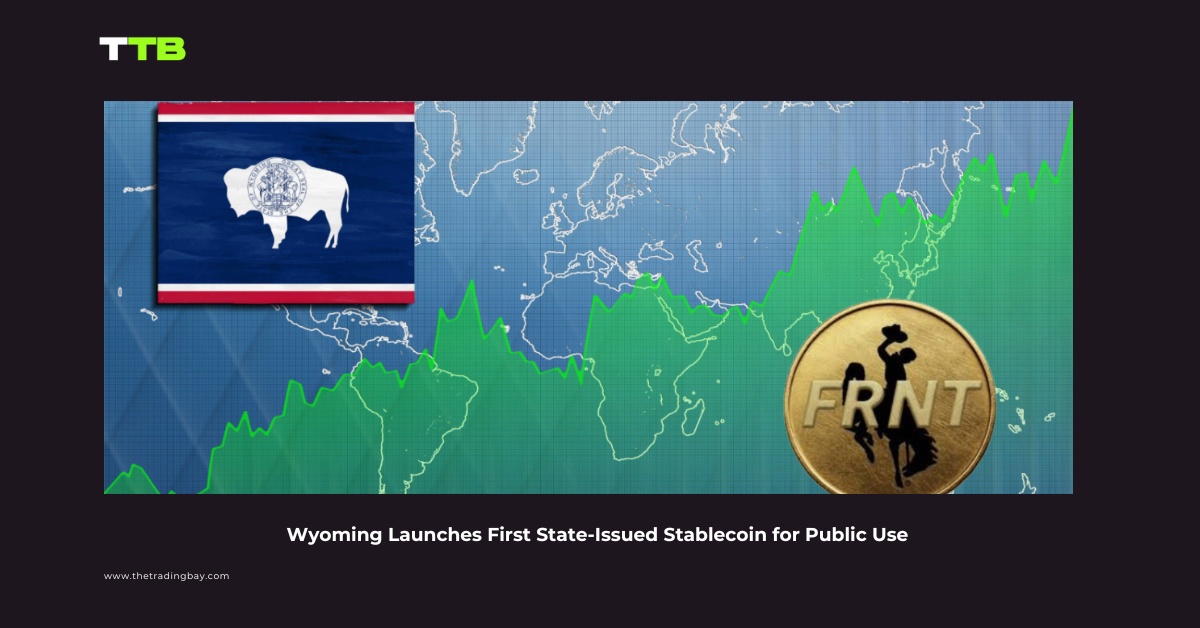The world of artificial intelligence encompasses much more than the generally known, popular applications like ChatGPT.
Within the broad spectrum of AI capabilities lies a transformative force reshaping the finance and investing sector. In the investment landscape, artificial intelligence offers tools for better decision-making and personalization in accordance with investor preferences and risk tolerance. Ideally, AI trading can optimize investment portfolios, predict market trends, manage risks, and make entry and exit decisions for trades.
In this article, we will overview what is AI trading for stocks, how does it work, and some potential benefits of AI Stock trading.
Understanding AI Trading for Stocks
At its core, AI stock trading is the fusion of predictive analytics, machine learning, and sentiment analysis to evaluate historical market data and trade stocks at the right time. This systematic way allows to analyze millions of data points, which consequently enables trading based on the best price and conditions. In addition, AI-based systems can predict the market trend with accuracy and efficiency that minimizes investment risks while enhancing profitability.
How AI Stock Trading Works?
Here, we dive into the main mechanisms that drive AI-based stock trading, clarifying how it works.
- Data Harnessing and Pre-processing
The essence of AI stock trading lies in the intricate procedure of data collection and preparation. AI systems are designed to collect comprehensive data sets from multiple sources such as historical market trends, macroeconomic indicators, news articles, and social media sentiments. This wide-ranging data collection capacity enables AI to mine a wealth of data, which in turn, provides a broad base for analysis.
Thereafter, the data goes through a rigorous cleaning process. This stage is vital in removing errors and giving the information a logical structure. AI algorithms are famous for their capabilities of identifying and correcting faults, filling in missing values, and structuring the data in a way that makes it easy to analyze.
This whole procedure makes the data not only complete but also accurate and ready to be analyzed in detail.
- Deriving Insights and Identifying Features
The subsequent stage includes feature extraction and indicator derivation from the cleaned data.
AI does this by applying advanced algorithms which identify the key variables that have been historically influencing stock price movements. These can be anything from financial metrics like price-to-earnings (P/E) ratios and trading volumes to more complex factors like sentiment scores extracted from news articles and social media. The precision of these tools is vital in constructing predictive models that can efficiently forecast market trends.
- Model Training and Predictive Analysis
With a rich dataset and a set of defined features, AI systems move on to the model training phase. Using machine learning algorithms, the models are trained on historical data with the purpose of identifying patterns and relationships between selected features and stock price movements. This approach grants AI the ability to anticipate the forthcoming stock movements and consequently assist investors in making more informed decisions.
- Decision Support and Automated Execution
AI-based stock trading platforms can help in decision-making and generate buy, sell or hold recommendations by using real-time data. These recommendations are adjusted to follow the market trends, the investors’ tolerance of risk, and their particular investment objectives.
Also, with the help of AI, all picks can be automatically run through brokerage platforms, ensuring the timely execution of actions in the dynamic trading environment.
- Continuous Improvement via Monitoring and Adaptation
An essential aspect of AI in stock trading is its ability to adapt and refine its predictive models over time.
Continuous monitoring allows for tracking the system performance, indicating any deviations or mistakes in forecasts. This feedback loop helps to fine-tune the models which subsequently leads to the enhanced accuracy and reliability of the models in response to the changing market conditions.
Key Advantages of AI Trading
AI stock trading provides a number of compelling advantages that make it an appealing choice for investors who want to optimize their investing strategies.
1. Enhanced Efficiency and Accuracy in Decision-Making:
Through AI-powered trading platforms, the process of analyzing large databases is simplified. A study demonstrated that traders using algorithmic strategies obtained a 10% increase in productivity. Through the utilization of AI historical data in decision-making, the likelihood of errors that might be introduced by humans is minimized, resulting in higher precision in trading actions.
2. Advanced Pattern Recognition Capabilities:
AI systems are good at identifying market trends and shifts by analyzing a large number of different sources, including articles and social media content, via sentiment analysis. This method is based on the application of natural language processing techniques to reveal subjective patterns which can be used to predict market movements with more reliability.
3. Reduction in Operating Expenses:
Different from old brokerage models that use a large human workforce, AI trading systems can automate most of the routine jobs. While the installation and maintenance of AI systems do incur certain costs, AI systems may eventually reduce long-term overhead by removing the need for big manpower.
Also, AI algorithms are able to work continuously, carrying on the market surveillance without human working hours restrictions.
Bottom Line
In the stock market arena, the advent of AI ushers in a new era of innovative technology and superior productivity. AI integration into the financial sector is a major step toward effective forecasting, as well as increased efficiency and reduced costs. On the other hand, this technology also comes with its flip side. Hence, it is important to adopt a balanced approach that synergizes machine intelligence with human insight.
Read more:
https://thetradingbay.com/best-trading-books-for-beginner-and-advanced-traders/












